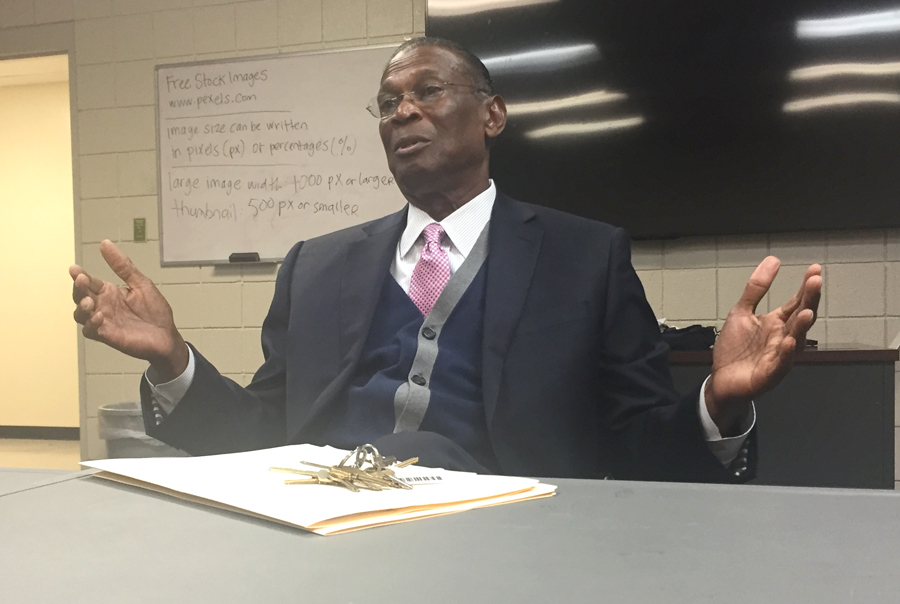Durant: Parking and food are hot topics on college campuses
By: OLANMA HAZEL MANG
Oct 17, 2018

Vice President Dr. Leroy Durant speaks during a Sept. 25 news conference. (Panther photo)
Parking enforcement allows students who have purchased parking decals to have parking space, Leroy Durant said in a news conference with The Panther on Sept. 25.
With students complaining about a scarcity of parking spaces, the university started enforcing the purchase of parking decals.
“Before we started enforcing the decal rule, there was no space because students who did not purchase a decal were taking the space up,” said Durant, the vice president of student development services.
One of the penalties for parking without a decal is a $25 fine, according to an email sent by Steve Pearson, Claflin’s chief law enforcement officer, at the beginning of the academic school year.
The decals cost $35 for residential, commuting and High-Rise students; $20 for continuing education and graduate students, $25 for adjunct faculty and $50 for faculty and staff.
“You can’t park unless you have a decal and students choose not to spend $35 for a decal,” Durant said. “We have not raised that in years.”
In response to complaints that cited overpopulation as a main cause of limited parking spaces, Durant said the university “has a strategic plan in how it grows its population.”
When admitting students, the university considers the number of students who graduated, dropped out or did not return for the next academic school year, he said.
“When you bring in 500 students, you're just replacing what went out,” Durant said. “So, the university's student body did not grow no more than about 20 students from year to year.”
He also said that with the completion of the new Health and Wellness Centre, scheduled to open in October, there will be “about 30 or 40 spaces” available.
Another main topic at the conference was food.
Durant reiterated there is a policy that allows students to carry food out of the cafeteria in containers that cost $5.
“You don’t pay as you get one; it’s just one time,” he said. The policy began in November 2017.
Durant said students are always welcome to bring complaints to the university’s food committee. “I'm always happy to listen and make the suggestion to the food service committee and to the director of the facility.”
The committee includes faculty, staff, students and the food service director, he said. The main struggle the committee faces is providing variety in food choices.
Durant also mentioned that the number of students that show up for breakfast is low – about 700 out of 1,200 on-campus students eat breakfast.
“When you fix your schedules, students, you have to always leave time to eat,” he said.
He added that he wanted students to be happy, but they cannot expect home-cooked meals from the cafeteria. “It may never be like mom's cooking but at no point in time you'll die from it.”